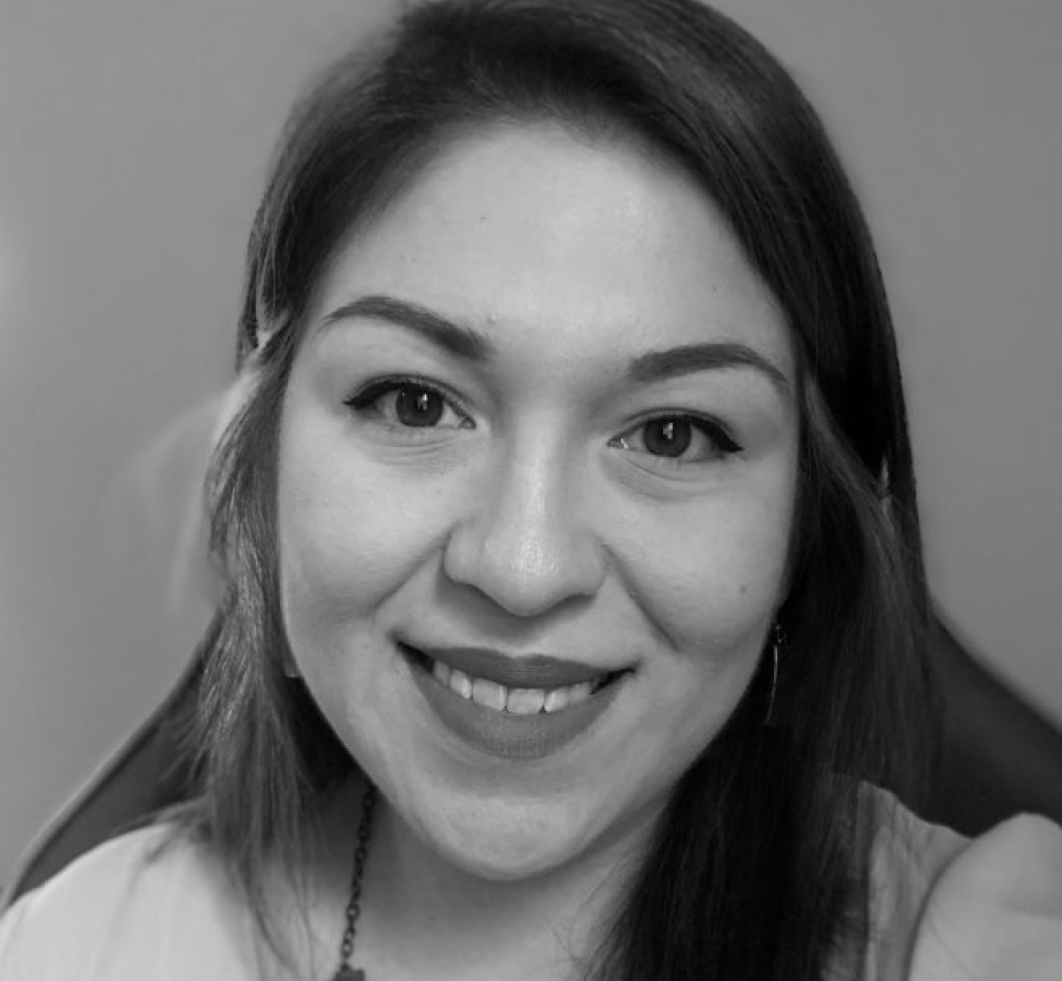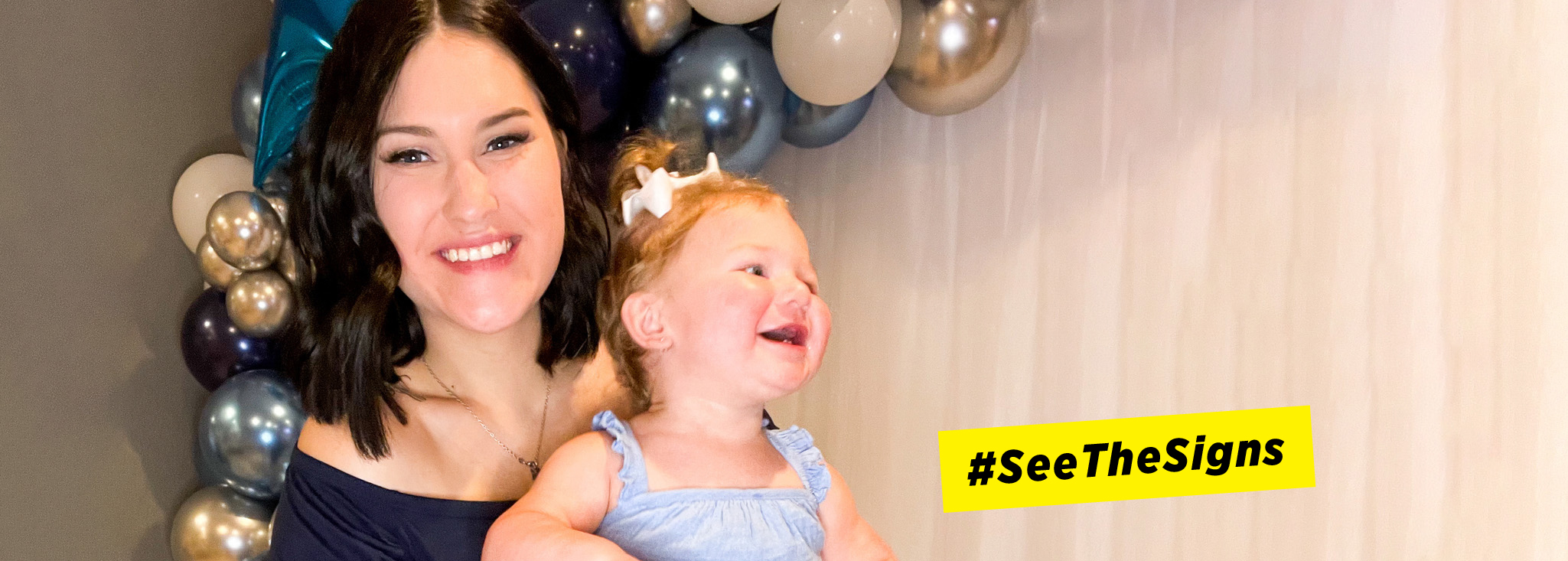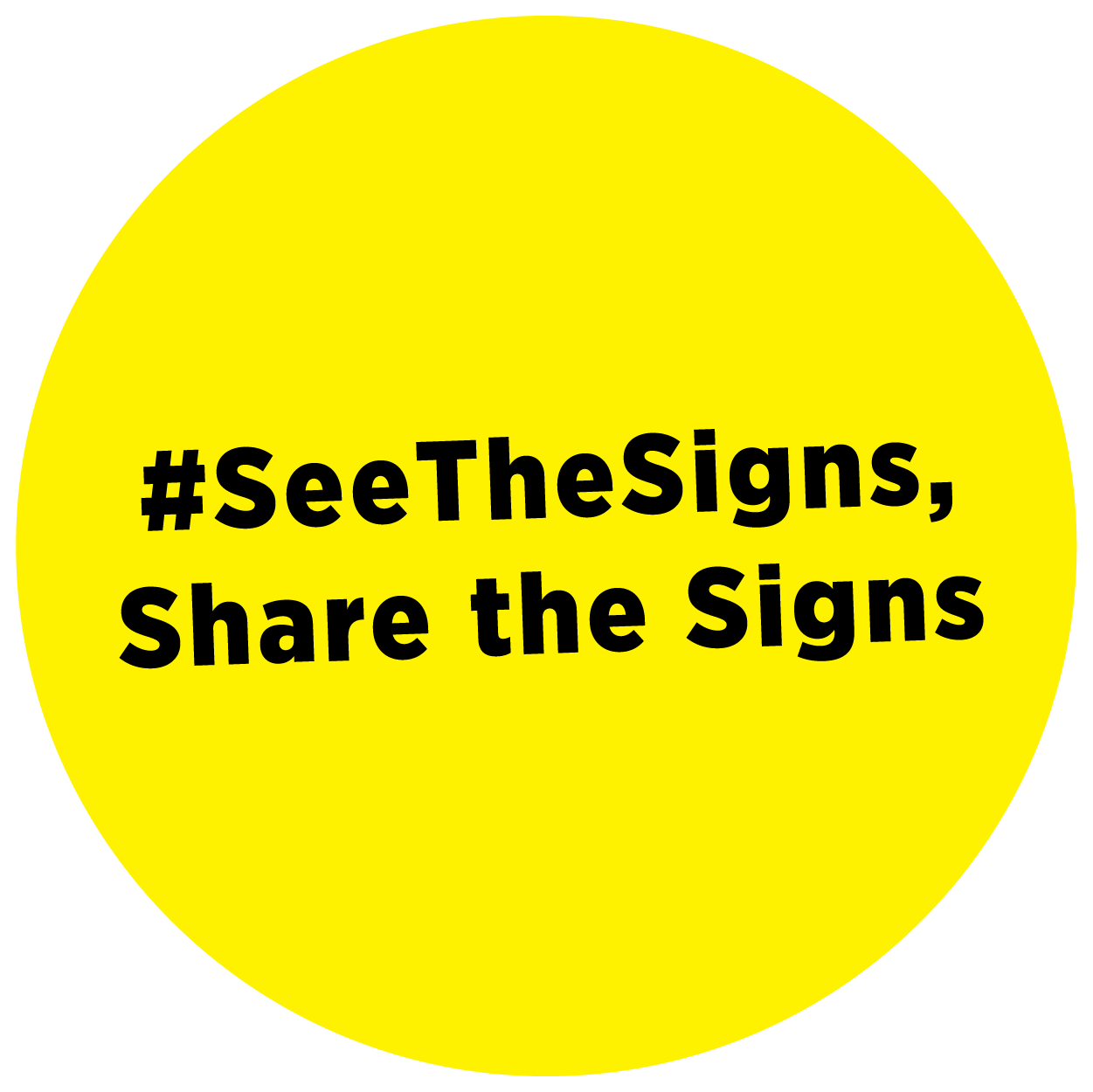Similar Signs, Different Diabetes: When Type 2 is Actually Type 1
Written by: Liz Cambron-Kopco
6 minute read
October 25, 2022
Editor’s Note: Get involved in Beyond Type 1’s #SeeTheSigns of diabetes campaign! Share your signs to help save lives, request #SeeTheSigns posters to share in your community, get sharable graphics for social media and more! Learn more here.
Are you an adult navigating a recent type 1 diabetes diagnosis? Our partners at JDRF created the free No Limits Adult Care Kit just for you—packed with information and tools to educate, support and inspire newly diagnosed adults with T1D. Request yours here.
Advocating for yourself and your health may look like speaking up with your provider about your diabetes care. Whether it’s asking about starting a new medication or pushing to get additional blood work done, it’s your right to advocate for your health. Beyond Type 2 sat down with Dex Geralds, a well-known member of the diabetes community online, to learn about his diabetes misdiagnosis story and his self-advocacy evolution.
This interview has been edited for length and clarity.
BT2: What were your warning signs for diabetes, and can you describe how you were feeling leading up to your original type 2 diagnosis?
Dex: Originally, about ten years ago I was diagnosed as type 2 diabetic. When I was diagnosed, some of my symptoms were that I was super thirsty all the time. It seemed like no matter how much water I drank, I just couldn’t stop being thirsty. I was irritable quite a bit and I’m just a naturally happy person, so that was really weird for me.
I was watching the video of a CrossFit athlete and he was type 1 diabetic and named off those same symptoms. After seeing that video, that’s when I decided to schedule an appointment with my doctor and found out I was living with type 2 diabetes.
For ten years, you believed you were living with type 2 diabetes and were treating your body for it. What led you to discover that you were actually misdiagnosed?
What helped me find out I was misdiagnosed was my partnership with 9am.health. They got blood work done for me and the results came back a little weird, especially because of how active I was and I was eating the right things. They went ahead and tested my blood again for antibodies. Turns out I was treating my type 1 diabetes this whole time as a type 2 diabetic.
What did treating type 2 diabetes look like for you versus what treating type 1 looks like now?
Treating type 2, for me, was just mostly just diet and exercise. I was eating carbs but just low carbs. I knew my body still needed carbs to function; at the time, I was on metformin and even glipizide for a little bit. After my corrected diagnosis, I got off the glipizide and metformin and now I take insulin. I take the long-acting insulin early in the morning and at night, and then the fast-acting insulin before most meals—about three times a day depending on how much carbs I’m eating.
Treating the wrong diagnosis can be really frustrating and lead to diabetes burnout. While treating type 2 diabetes but living with type 1, how did that impact your mental health?
Yeah, treating my type 1 diabetes as a type 2 was extremely frustrating. I’m also a very optimistic person, so I just kept trying. Sometimes, for a week or so, I’d have good numbers and be in range. Then for the rest of that month, it’d just be really bad numbers.
The most frustrating thing was using exercise as a way to bring my blood sugars down. I would run three miles or hop on the rowing machine, on top of the exercising that I was already doing. I spent a lot of time exercising to get my numbers in range and that just beat up my body a lot.
The frustration came and like I said, I’m just really optimistic and positive about things. Now that I have the right diagnosis, things have been a lot better.
How did it feel when you finally discovered that you have type 1 diabetes and not type 2?
The biggest thing was feeling like I was losing that connection with the type 2 community and I kind of worried about how I would navigate life now. I’ve spent the last ten years with the type 2 community, helping people who live with type 2 with exercise and being a positive role model for them.
All I really knew in the past was type 2, so I was kind of nervous that somehow I would abandon the type 2 community. But now I feel like it’s been a blessing to be able to live life as a type 2 diabetic and experience all the things that come with that, all the positives and negatives.
Now that I have my correct diagnosis of type 1, I’m even more connected to the diabetic community—it’s really been a blessing.
Looking back, were there any simple markers that your healthcare providers should have checked for to save you those ten years of misdiagnosis?
At that time (of my type 2 diabetes diagnosis), I was a competitive Crossfitter—I was competing a lot. My diet was dialed in and I think instead of just diagnosing me with type 2, they probably should have done more tests.
People would tell me throughout the last ten years, ‘Maybe you should get retested and see if you’re actually type 1.’ I wish at the time my doctors would’ve gave me more care and ran more tests. The biggest thing was they just gave me medication. Take this, take this and take this. That was it—it was never how to care for diabetes. I just wish there was a little bit more education (about diabetes management) through the process after I was diagnosed.
Do you think that there was any particular reason why they didn’t test you for other things?
Yeah, I mean there’s a couple reasons. One, just being a black person in America and knowing that that’s something that affects the black community. Maybe they just assumed that’s what it was. That’s probably the biggest reason—just based off race.
I also have a family history of (type 2 diabetes). My mom and dad had type 2 diabetes and a couple of my relatives do too. Still thinking of a positive kind of outlook on it, I hope that was the case on why they didn’t really treat me for any other type of diabetes.
People with diabetes may have to advocate for themselves to receive proper treatment and diagnosis. What does self-advocacy mean to you?
I think in order for us to be better people in our community, or not even just in a diabetic world, you need to take care of yourself and that means that you can’t shy away from things you think are happening to you. That’s something I did.
I didn’t really question what was going on, even though I was hearing different opinions about what was happening to me. I was like, ‘No way, that can’t really be.’—even though I felt like something was off inside.
If you feel something is off, speak up. You never know. It’s okay if you’re wrong, but you never know if you’re going to be right. Always get that second opinion and stick up for yourself because you being around is going to help someone else with their journey with diabetes.
Was there a moment that you realized you needed to speak up for yourself to change your diabetes care?
The moment for me to step up for my diabetes care was after the partnership with 9am.health and realizing that everything that a doctor says might not be true. I have to start figuring things out for myself and questioning things that I hear. Right after I was misdiagnosed, that’s when I was like ‘Oh, I got to step up and start to take care of myself and ask questions.’
You have a special perspective because you’ve lived with both diagnoses, in both communities. What is your biggest takeaway for how people in the diabetes community can be better advocates for each other?
I think the best way for us to be better advocates for each other is to have conversations. There’s a lot of perceived things about type 1 or type 2 diabetics, and I think the best way to learn about each other is to actually reach out and have a conversation about diabetes.
A lot of times, especially when I was in the type 2 circle, it just seemed like I couldn’t really reach out to too many type 1 diabetics. I did know some but it just seemed like both were closed off. I know there’s always these type 1 meetups and type 2 meetups, but I think we just need to have a diabetes meet up and get to know each other.
I think that’s going to create the empathy for each other and we can be better advocates that way.
Editor’s note: Educational content related to self-advocacy is made possible with support from Lilly Diabetes, an active partner of Beyond Type 1 at the time of publication. Editorial control rests solely on Beyond Type 1.

Author
Liz Cambron-Kopco
Liz has been living with type 2 diabetes since 2014, but grew up surrounded by it as a first-generation Mexican-American. With a bug for research, Liz pursued a PhD in molecular biology and spent her early career studying insulin signaling in invertebrates to understand how insects’ tiny little bodies work. Along with advocating for women and girls in STEM, Liz shares her personal journey with diabetes on her social media platforms to help teach people to become their own advocates. Her passion for advocacy led her to join the Beyond Type 1 team. When she’s not advocating, Liz enjoys hiking... Read more
Related Resources

I often got sick when I was little. Still, I was an extremely active child—I...
Read more

I am Irene Villagómez, and I have lived with type 1 diabetes for 36 years....
Read more

Editor’s Note: Get involved in Beyond Type 1’s #SeeTheSigns of diabetes campaign! Share your signs...
Read more


